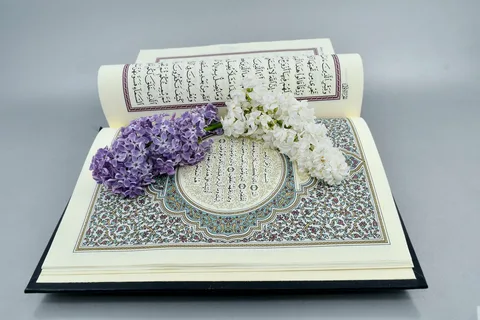which angels are mentioned in the quran, The concept of angels holds profound significance across various religious traditions. In Islam, angels play a pivotal role as divine messengers, guardians, and witnesses. Let’s delve into the Quran to unravel the identities and roles of these celestial beings.
Angelic Beings in Islamic Tradition
Islam recognizes angels as spiritual beings created from light, distinct from jinn and humans. Understanding their nature is crucial for comprehending their various roles in Islamic theology.
which angels are mentioned in the quran

In the vast tapestry of religious beliefs, angels serve as emissaries between the divine and the earthly realm. The Quran, the holy book of Islam, provides unique insights into these celestial entities, shedding light on their roles and significance within the Islamic faith.
1. Jibril (Gabriel): The Messenger Angel
Jibril, known as Gabriel in Judeo-Christian traditions, is a prominent angel in Islam. His primary role involves conveying God’s messages to the prophets, serving as a link between the divine and human realms.
2. Israfil: The Trumpet-Blower
Israfil’s trumpet-playing is a symbolic event associated with the Day of Judgment. This angel’s task is to herald the end of the world, signaling the resurrection and ultimate accountability.
3. Mikail: The Provider of Nourishment
Mikail, the angel of nourishment, is responsible for providing sustenance to humans according to God’s will. His benevolent role emphasizes mercy and compassion in the divine plan.
4. Malak al-Maut: The Angel of Death
The concept of death in Islam is intertwined with the role of Malak al-Maut. This angel is tasked with extracting the souls of individuals at the appointed time, highlighting the transient nature of life.
5. Raqib and Atid: The Recording Angels
Raqib and Atid diligently record the deeds of individuals, creating a meticulous account of one’s actions. This recording serves as a testament during the Day of Judgment.
6. Munkar and Nakir: The Interrogating Angels
Munkar and Nakir question souls in the grave, assessing their faith and deeds. This process, though daunting, is an essential aspect of the afterlife in Islamic belief.
Recommend: What is Salah in Islam
Guardian Angels in Islam
The concept of personal guardian angels adds a layer of individualized care and protection in Islamic belief. These angels guide and safeguard individuals throughout their lives.
Angels as Witnesses
Angels bear witness to human actions, emphasizing accountability and ethical conduct. Their presence as witnesses underscores the divine awareness of every deed.
The Role of Angels in Worship
Angels play a crucial role in Islamic worship, invoked during prayers and rituals. Recognizing their presence adds a spiritual dimension to acts of devotion.
The role of angels in worship varies across different religious traditions, and beliefs about angels can be found in various cultures and faiths. Here are perspectives from Christianity and Islam, two major world religions that acknowledge the existence of angels:
Christianity:
- Angelic Presence in Worship: In Christian theology, angels are often considered divine messengers and servants of God. While they are not worshiped themselves, they are believed to play a role in facilitating communication between humans and the divine.
- Praise and Adoration: Angels are portrayed in the Bible as beings who continually praise and worship God. For example, in the Book of Isaiah, there’s a vision of angels surrounding God’s throne, saying, “Holy, holy, holy is the Lord Almighty; the whole earth is full of his glory” (Isaiah 6:3, NIV).
- Guardianship: Some Christian traditions believe in guardian angels who watch over and protect individuals. While not directly related to worship services, the idea of angels as protectors is part of the broader understanding of angelic roles in Christian belief.
Islam:
- Angelic Presence in Worship: In Islam, angels are considered created beings who follow the commands of Allah. They play a role in carrying out God’s will and are not to be worshiped. Worship in Islam is reserved solely for Allah.
- Recitation of Angelic Praises: In Islamic tradition, there are angels whose specific roles include recording the deeds of individuals. For example, Kiraman Katibin are the angels who record a person’s deeds, both good and bad. Believers are encouraged to engage in acts of worship and seek forgiveness through prayer and repentance.
- Angels Participating in Worship: Angels are believed to join humans in their worship of Allah. In congregational prayers, Muslims believe that angels stand in rows alongside humans, witnessing the worship and recording the names of those who attend.
In both Christianity and Islam, the focus of worship remains on the divine, and angels are seen as intermediaries or participants in the worship rather than objects of worship themselves. Believers seek a direct connection with God through prayer, praise, and acts of devotion.
Read more: first woman to enter jannah
FAQs
Do angels have free will in Islamic theology?
Angels lack free will and act solely in accordance with God's divine commands.
Can humans communicate with angels in Islam?
While direct communication is not common, angels influence human affairs in subtle ways, guided by God's wisdom.
Are there female angels in Islam?
The Quran doesn't specify gender for angels, emphasizing their spiritual essence over physical characteristics.
What is the significance of guardian angels in Islam?
Guardian angels provide protection and guidance, ensuring individuals remain on the path of righteousness.
How do angels contribute to the concept of accountability in Islam?
Angels serve as witnesses and record-keepers, highlighting the importance of ethical conduct and accountability in the afterlife.
Conclusion
In conclusion, the Quran offers a comprehensive framework for understanding the diverse roles of angels. From messengers and guardians to witnesses and record-keepers, these celestial beings form an integral part of Islamic belief, guiding and shaping the spiritual journey of believers.



